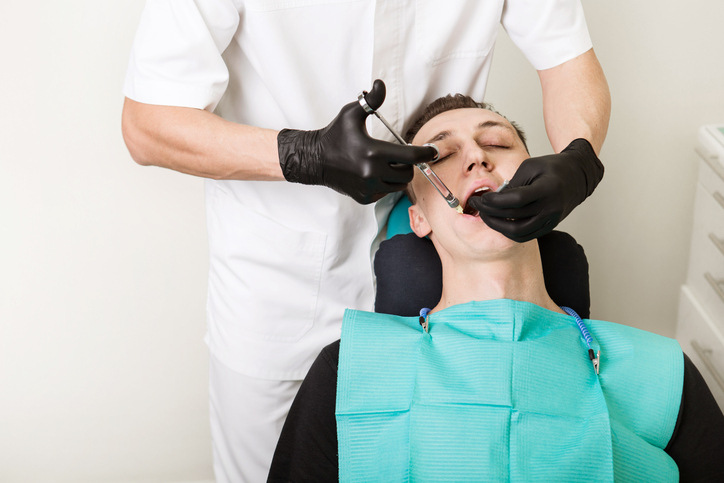While dentistry has evolved in precise and pain-free practice, many still find it stressful, intimidating and nerve-racking. Although local anesthesia is used during most dental and surgical procedures, many treatments can be provided with added comfort. In a dental office, physical and emotions senses are heightened with the anxieties from the local anesthesia injection, hyper gag reflex or the length and complexity of the treatment. Now, our patients have more options and freedom with dental sedation and anesthesia.
At Personal Dental Office, for patients with severe anxieties, we offer a variety of sedation choices. From simple administration of nitrous oxide to an on-staff dental anesthesiologist, our office is fully equipped and licensed to handle the most anxious and phobic patients who find it comforting to sleep through the entire process of their dental work. If you are looking for the best Sleep Dentistry Los Angeles, contact us right away!
For more information about our practice or to schedule a consultation or to speak with a dental specialist, call our office in Los Angeles, CA 90048 at (323)933-4444.
What is Sedation and Anesthesia?
Dental sedation is a semi-conscious state that results in reduced anxiety, pain awareness, and recall. Sedative medications, such as Valium, are administered to create a relaxed environment during the dental treatment. Additional medications similar to Brevital can be administered to induce anesthesia for a deeper sleep.
How is the Medication Administered?
The sedative and anesthetic medications are typically given intravenously (IV). Since the effects are so smooth and rapid via this means of administration, our doctors can precisely administer and adjust the correct amounts of the medication so that you are relaxed and comfortable. Also, if additional medication or adjuncts are necessary during and for the dental treatment, the IV allows easy administration of these medications.
Is Anesthesia Safe?
Personal Dental Office is certified and approved by the dental board to administer sedation, and all doctors who administer sedation carry Sedation Licenses, which requires advanced training and board exams. All of the assistants assisting the doctors have advanced education and have completed Advanced Cardiac Life Support training and testing. Our facility and staff are equipped and trained to handle any emergency situation. Additionally we have an amazing on-staff dental anesthesiologist Dr. Andrew Chen, who limits his practice to anesthesiology. Dr. Chen, sedation dentist West Hollywood, has completed a 2-year medical residency in Anesthesiology, and is an Assistant Professor in Medicine and Anesthesiology at USC, School of Dentistry. All of our doctors have superb records of safety.
How am I Monitored During the Treatment?
Depending upon the depth of sedation and your condition, various state-of the-art monitors are used. These include the automatic blood pressure cuff, ECG, precordial stethoscope and pulse-oximeter. The pulse-oximeter measures the oxygen concentration in your blood through a light sensor. Sometimes a capnograph may be used as well to measure your carbon dioxide levels. We always closely monitor you during the procedure and recovery period.
Pre-Operative Instructions
Nitrous Oxide (Laughing Gas)
Nitrous oxide has been the primary means of sedation in dentistry for many years. Nitrous oxide is safe; the patient receives 50-70 percent oxygen with no less than 30 percent nitrous oxide. It is a sweet smelling, non-irritating, colorless gas which is inhaled. The patient is able to breathe on his or her own and remain in control of all bodily functions.
The patient may experience mild amnesia and may fall asleep not remembering all of what happened during their appointment.
There are many advantages to using nitrous oxide:
Reasons Not To Use Nitrous Oxide
Though there are no major contraindications to using nitrous oxide, you may not want to use it if you have emphysema, chest problems, multiple sclerosis, a cold, or other difficulties with breathing.
You may want to ask your dentist for a five-minute trial to see how you feel with this type of sedation method before proceeding.

